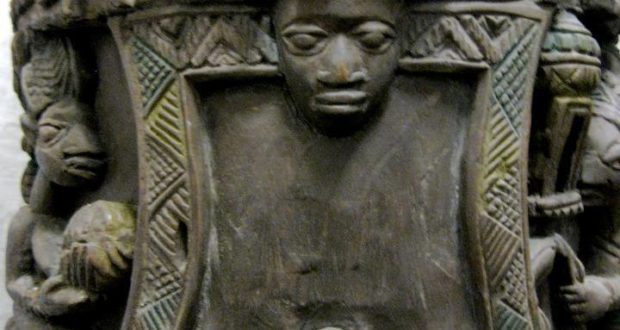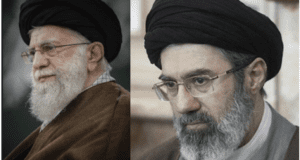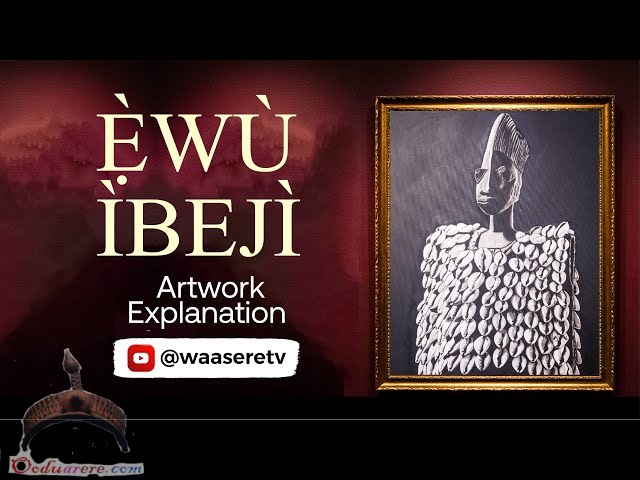Out of love for the truth and from desire to elucidate it, the Reverend Father Martin Luther, Master of Arts and Sacred Theology, and ordinary lecturer therein at Wittenberg, intends to defend the following statements and to dispute on them in that place. Therefore he asks that those who cannot be present and dispute with him orally shall do so in their absence by letter. In the name of our Lord Jesus Christ, Amen.
When our Lord and Master Jesus Christ said, “Repent” (Mt 4:17), he willed the entire life of believers to be one of repentance.
This word cannot be understood as referring to the sacrament of penance, that is, confession and satisfaction, as administered by the clergy.
Yet it does not mean solely inner repentance; such inner repentance is worthless unless it produces various outward mortification of the flesh.
The penalty of sin remains as long as the hatred of self (that is, true inner repentance), namely till our entrance into the kingdom of heaven.
The pope neither desires nor is able to remit any penalties except those imposed by his own authority or that of the canons.
The pope cannot remit any guilt, except by declaring and showing that it has been remitted by God; or, to be sure, by remitting guilt in cases reserved to his judgment. If his right to grant remission in these cases were disregarded, the guilt would certainly remain unforgiven.
God remits guilt to no one unless at the same time he humbles him in all things and makes him submissive to the vicar, the priest.
The penitential canons are imposed only on the living, and, according to the canons themselves, nothing should be imposed on the dying.
Therefore the Holy Spirit through the pope is kind to us insofar as the pope in his decrees always makes exception of the article of death and of necessity.
Those priests act ignorantly and wickedly who, in the case of the dying, reserve canonical penalties for purgatory.
Those tares of changing the canonical penalty to the penalty of purgatory were evidently sown while the bishops slept (Mt 13:25).
In former times canonical penalties were imposed, not after, but before absolution, as tests of true contrition.
The dying are freed by death from all penalties, are already dead as far as the canon laws are concerned, and have a right to be released from them.
Imperfect piety or love on the part of the dying person necessarily brings with it great fear; and the smaller the love, the greater the fear.
This fear or horror is sufficient in itself, to say nothing of other things, to constitute the penalty of purgatory, since it is very near to the horror of despair.
Hell, purgatory, and heaven seem to differ the same as despair, fear, and assurance of salvation.
It seems as though for the souls in purgatory fear should necessarily decrease and love increase.
Furthermore, it does not seem proved, either by reason or by Scripture, that souls in purgatory are outside the state of merit, that is, unable to grow in love.
Nor does it seem proved that souls in purgatory, at least not all of them, are certain and assured of their own salvation, even if we ourselves may be entirely certain of it.
Therefore the pope, when he uses the words “plenary remission of all penalties,” does not actually mean “all penalties,” but only those imposed by himself.
Thus those indulgence preachers are in error who say that a man is absolved from every penalty and saved by papal indulgences.
As a matter of fact, the pope remits to souls in purgatory no penalty which, according to canon law, they should have paid in this life.
If remission of all penalties whatsoever could be granted to anyone at all, certainly it would be granted only to the most perfect, that is, to very few.
For this reason most people are necessarily deceived by that indiscriminate and high-sounding promise of release from penalty.
That power which the pope has in general over purgatory corresponds to the power which any bishop or curate has in a particular way in his own diocese and parish.
The pope does very well when he grants remission to souls in purgatory, not by the power of the keys, which he does not have, but by way of intercession for them.
They preach only human doctrines who say that as soon as the money clinks into the money chest, the soul flies out of purgatory.
It is certain that when money clinks in the money chest, greed and avarice can be increased; but when the church intercedes, the result is in the hands of God alone.
Who knows whether all souls in purgatory wish to be redeemed, since we have exceptions in St. Severinus and St. Paschal, as related in a legend.
No one is sure of the integrity of his own contrition, much less of having received plenary remission.
The man who actually buys indulgences is as rare as he who is really penitent; indeed, he is exceedingly rare.
Those who believe that they can be certain of their salvation because they have indulgence letters will be eternally damned, together with their teachers.
Men must especially be on guard against those who say that the pope’s pardons are that inestimable gift of God by which man is reconciled to him.
For the graces of indulgences are concerned only with the penalties of sacramental satisfaction established by man.
They who teach that contrition is not necessary on the part of those who intend to buy souls out of purgatory or to buy confessional privileges preach unchristian doctrine.
Any truly repentant Christian has a right to full remission of penalty and guilt, even without indulgence letters.
Any true Christian, whether living or dead, participates in all the blessings of Christ and the church; and this is granted him by God, even without indulgence letters.
Nevertheless, papal remission and blessing are by no means to be disregarded, for they are, as I have said (Thesis 6), the proclamation of the divine remission.
It is very difficult, even for the most learned theologians, at one and the same time to commend to the people the bounty of indulgences and the need of true contrition.
A Christian who is truly contrite seeks and loves to pay penalties for his sins; the bounty of indulgences, however, relaxes penalties and causes men to hate them — at least it furnishes occasion for hating them.
Papal indulgences must be preached with caution, lest people erroneously think that they are preferable to other good works of love.
Christians are to be taught that the pope does not intend that the buying of indulgences should in any way be compared with works of mercy.
Christians are to be taught that he who gives to the poor or lends to the needy does a better deed than he who buys indulgences.
Because love grows by works of love, man thereby becomes better. Man does not, however, become better by means of indulgences but is merely freed from penalties.
Christians are to be taught that he who sees a needy man and passes him by, yet gives his money for indulgences, does not buy papal indulgences but God’s wrath.
Christians are to be taught that, unless they have more than they need, they must reserve enough for their family needs and by no means squander it on indulgences.
Christians are to be taught that they buying of indulgences is a matter of free choice, not commanded.
Christians are to be taught that the pope, in granting indulgences, needs and thus desires their devout prayer more than their money.
Christians are to be taught that papal indulgences are useful only if they do not put their trust in them, but very harmful if they lose their fear of God because of them.
Christians are to be taught that if the pope knew the exactions of the indulgence preachers, he would rather that the basilica of St. Peter were burned to ashes than built up with the skin, flesh, and bones of his sheep.
Christians are to be taught that the pope would and should wish to give of his own money, even though he had to sell the basilica of St. Peter, to many of those from whom certain hawkers of indulgences cajole money.
It is vain to trust in salvation by indulgence letters, even though the indulgence commissary, or even the pope, were to offer his soul as security.
They are the enemies of Christ and the pope who forbid altogether the preaching of the Word of God in some churches in order that indulgences may be preached in others.
Injury is done to the Word of God when, in the same sermon, an equal or larger amount of time is devoted to indulgences than to the Word.
It is certainly the pope’s sentiment that if indulgences, which are a very insignificant thing, are celebrated with one bell, one procession, and one ceremony, then the gospel, which is the very greatest thing, should be preached with a hundred bells, a hundred processions, a hundred ceremonies.
The true treasures of the church, out of which the pope distributes indulgences, are not sufficiently discussed or known among the people of Christ.
That indulgences are not temporal treasures is certainly clear, for many indulgence sellers do not distribute them freely but only gather them.
Nor are they the merits of Christ and the saints, for, even without the pope, the latter always work grace for the inner man, and the cross, death, and hell for the outer man.
St. Lawrence said that the poor of the church were the treasures of the church, but he spoke according to the usage of the word in his own time.
Without want of consideration we say that the keys of the church, given by the merits of Christ, are that treasure.
For it is clear that the pope’s power is of itself sufficient for the remission of penalties and cases reserved by himself.
The true treasure of the church is the most holy gospel of the glory and grace of God.
But this treasure is naturally most odious, for it makes the first to be last (Mt. 20:16).
On the other hand, the treasure of indulgences is naturally most acceptable, for it makes the last to be first.
Therefore the treasures of the gospel are nets with which one formerly fished for men of wealth.
The treasures of indulgences are nets with which one now fishes for the wealth of men.
The indulgences which the demagogues acclaim as the greatest graces are actually understood to be such only insofar as they promote gain.
They are nevertheless in truth the most insignificant graces when compared with the grace of God and the piety of the cross.
Bishops and curates are bound to admit the commissaries of papal indulgences with all reverence.
But they are much more bound to strain their eyes and ears lest these men preach their own dreams instead of what the pope has commissioned.
Let him who speaks against the truth concerning papal indulgences be anathema and accursed.
But let him who guards against the lust and license of the indulgence preachers be blessed.
Just as the pope justly thunders against those who by any means whatever contrive harm to the sale of indulgences.
Much more does he intend to thunder against those who use indulgences as a pretext to contrive harm to holy love and truth.
To consider papal indulgences so great that they could absolve a man even if he had done the impossible and had violated the mother of God is madness.
We say on the contrary that papal indulgences cannot remove the very least of venial sins as far as guilt is concerned.
To say that even St. Peter if he were now pope, could not grant greater graces is blasphemy against St. Peter and the pope.
We say on the contrary that even the present pope, or any pope whatsoever, has greater graces at his disposal, that is, the gospel, spiritual powers, gifts of healing, etc., as it is written. (1 Co 12[:28])
To say that the cross emblazoned with the papal coat of arms, and set up by the indulgence preachers is equal in worth to the cross of Christ is blasphemy.
The bishops, curates, and theologians who permit such talk to be spread among the people will have to answer for this.
This unbridled preaching of indulgences makes it difficult even for learned men to rescue the reverence which is due the pope from slander or from the shrewd questions of the laity.
Such as: “Why does not the pope empty purgatory for the sake of holy love and the dire need of the souls that are there if he redeems an infinite number of souls for the sake of miserable money with which to build a church?” The former reason would be most just; the latter is most trivial.
Again, “Why are funeral and anniversary masses for the dead continued and why does he not return or permit the withdrawal of the endowments founded for them, since it is wrong to pray for the redeemed?”
Again, “What is this new piety of God and the pope that for a consideration of money they permit a man who is impious and their enemy to buy out of purgatory the pious soul of a friend of God and do not rather, beca use of the need of that pious and beloved soul, free it for pure love’s sake?”
Again, “Why are the penitential canons, long since abrogated and dead in actual fact and through disuse, now satisfied by the granting of indulgences as though they were still alive and in force?”
Again, “Why does not the pope, whose wealth is today greater than the wealth of the richest Crassus, build this one basilica of St. Peter with his own money rather than with the money of poor believers?”
Again, “What does the pope remit or grant to those who by perfect contrition already have a right to full remission and blessings?”\
Again, “What greater blessing could come to the church than if the pope were to bestow these remissions and blessings on every believer a hundred times a day, as he now does but once?”
“Since the pope seeks the salvation of souls rather than money by his indulgences, why does he suspend the indulgences and pardons previously granted when they have equal efficacy?”
To repress these very sharp arguments of the laity by force alone, and not to resolve them by giving reasons, is to expose the church and the pope to the ridicule of their enemies and to make Christians unhappy.
If, therefore, indulgences were preached according to the spirit and intention of the pope, all these doubts would be readily resolved. Indeed, they would not exist.
Away, then, with all those prophets who say to the people of Christ, “Peace, peace,” and there is no peace! (Jer 6:14)
Blessed be all those prophets who say to the people of Christ, “Cross, cross,” and there is no cross!
Christians should be exhorted to be diligent in following Christ, their Head, through penalties, death and hell.
And thus be confident of entering into heaven through many tribulations rather than through the false security of peace (Acts 14:22)
Because things have fallen apart, and the center no longer holds for African peoples and their Diaspora peoples living within and outside the continent, we will explore 100 Theses, one by one, for the need to orchestrate the Full and Unmitigated Reformation of Ifa and Other Orisa Based Agencies of African Divination, Worship, Belief Systems, Philosophies, Theology, Ancestral Adoration and Religions.
1. Slavery, the most central tool used for the subjugation, confusion and control of peoples of Africa and its Diasporas has remained neglected, ignored, silenced and subordinated by cultural custodians, including Obas, Ijoyes, Babalawos, Iyanifas, Babalorisas, Iyalorisas, Oniseguns, Adahunses, and other indigenous spiritual leaders of Africa and its Diasporas–although these cultural custodians know fully well, or they are abjectly ignorant that without a full recognition, discussion and treatment of this historical cancer, it is impossible for peoples who look up to them to understand or fully benefit from indigenous systems of divinity.
2. Slavery began in Africa and its cancerous growths led to the collapse of fundamental human and spiritual values of collective humanism on which the continent was constructed and sustained.
3. The African Obas, Ijoyes, Babalawos, Iyanifas, Babalorisas, Iyalorisas, Oniseguns, Adahunses, and other indigenous spiritual leaders directly or indirectly participated in and aided the spread of this cancerous growth, from which they benefited materially, while compromising humanistic spiritual foundations and benevolent cultural values inherent in Orisa divinity.
4. European and American participation in slavery was in collusion with those who could have saved the continent from the cancer of slavery, African Obas, Ijoyes, Babalawos, Iyanifas, Babalorisas, Iyalorisas, Oniseguns, Adahunses, and other indigenous spiritual leaders.
5. As they turned into predators and worked hand in hand with the foreign invaders to spread the cancer of slavery, these African spiritual and political leaders automatically forfeited their essential powers, awe, and dignity–the very ÀṢẸ that the Orisa gave them to lead and direct the continent.
6. Forgetting that the basis of ÀṢẸ resides in the ordinary people, these African Obas, Ijoyes, Babalawos, Iyanifas, Babalorisas, Iyalorisas, Oniseguns, Adahunses, and other indigenous spiritual leaders came under the protection of their foreign European and American co-conspirators, who formed armies, police forces, and other tools of violence to protect their interests, and terrorize the African peoples.
7. Once these African Obas, Ijoyes, Babalawos, Iyanifas, Babalorisas, Iyalorisas, Oniseguns, Adahunses, and other indigenous spiritual leaders came under the protection of the foreign invaders, these African custodians of culture re-invented and bastardized indigenous cultures to facilitate their personal purposes–thereby surrendering any claim to credibility among the people they were ordained to lead.
8. The African Obas, Ijoyes, Babalawos, Iyanifas, Babalorisas, Iyalorisas, Oniseguns, Adahunses, and other indigenous spiritual leaders moved from being leaders to becoming rulers who directly and indirectly served foreign interest, while maintaining an illusion and appearance of serving the people that the Orisa expected them to protect.
9. It is from this moment of abdication of power (by African Obas, Ijoyes, Babalawos, Iyanifas, Babalorisas, Iyalorisas, Oniseguns, Adahunses, and other indigenous spiritual leaders) to European and American invaders that Black lives ceased to matter, and since then Black lives have not mattered.
10. These African Obas, Ijoyes, Babalawos, Iyanifas, Babalorisas, Iyalorisas, Oniseguns, Adahunses, and other indigenous spiritual leaders have continued to function as local agents of the foreign European and American invaders, while appearing to the people as bona fide cultural leaders, although the blood of those they have destroyed have washed away all the ÀṢẸ they used to have.
11. It is therefore not surprising that Africans quickly began to move away from the indigenous religions of Orisa, because it became clear to them that these African Obas, Ijoyes, Babalawos, Iyanifas, Babalorisas, Iyalorisas, Oniseguns, Adahunses, and other indigenous spiritual leaders have lost their ASE, and were empty vessels serving devilish, evil, inhuman and destructive forces.
12. Many Africans became Catholics, Methodists, Baptists, Seventh Day Adventists, and members of other Episcopalian denominations, as they fled in panic from the terror of African Obas, Ijoyes, Babalawos, Iyanifas, Babalorisas, Iyalorisas, Oniseguns, Adahunses, and other indigenous spiritual leaders, whom they have now associated with all the evils, poverty, diseases, war, and other malevolent forces bedeviling them.
13. Many Africans escaping from the terrorist campaigns of slavery, such as Samuel Ajayi Crowther, not only converted to Christianity, they helped in the translation of the Bible into indigenous languages, in which they identified indigenous African spirituality with the devil and devil worshiping.
14. The African Obas, Ijoyes, Babalawos, Iyanifas, Babalorisas, Iyalorisas, Oniseguns, Adahunses, and other indigenous spiritual leaders who facilitated the cancer of slavery have totally kept quiet about the cancer, pretending nothing calamitous ever happened, rewriting histories, and propagating mythologies, and enacting festivals and performances to erase and suppress the memories of slavery from the average citizenry.
15. Because the African Obas, Ijoyes, Babalawos, Iyanifas, Babalorisas, Iyalorisas, Oniseguns, Adahunses, and other indigenous spiritual leaders have cleverly shielded their nefarious cancerous activities of slavery from the people that the Orisa placed under their protection, most Africans are truly clueless concerning the history and metaphysics of slavery, and do not understand the connection of the cancer with their own lives.
16. In Africa, slavery hides in full view, because Africans do not “see” the ravages of the cancer in everyday life, even as poverty, diseases, and violent events assault their lives almost on a daily basis.
17. In Africa, the quality of life has deteriorated below the norm in almost every other part of the world, although people are unable to understand why this is so, and are unable to realize that some of the best and brightest of their people have been destroyed by the cancer of slavery, that some of their great great cities, objects, arts and cultures have been ruined and destroyed by the cancer of slavery.
18. Because the African Obas, Ijoyes, Babalawos, Iyanifas, Babalorisas, Iyalorisas, Oniseguns, Adahunses, and other indigenous cultural and spiritual leaders refused to fully unite it allowed the imales to unify under the Sultan of Sokoto, under his centralized leadership, and have proceeded to gradually take over the livelihoods and lands of the common people who kept tradition. The Christians have done the same leading to a huge epidemic of spiritual slavery amongst African people.
19. One event of defiance against the ambitions of the colonial powers does not constitute a war to stop their aggression. And yes there are a lot of nuances that we must address such as the difference between chattel slavery and African servitude, the fact that no one came back originally from the slave ships to tell the community what was going on, and also that the African populace really didn’t convert from traditional religion in droves until roughly a generation or two ago. We can all work together to improve this theses. But what we shouldn’t do is pretend that we shouldn’t do or say anything.
20. The same reason that the Alaafin didn’t protect the other cities is the same reason the ifes today refuse to help unify the faith. He saw himself as being different and better. He still does today. I am not trying to disparage our Oyo father nor our Ife father, but we have to acknowledge some bare bones truths, create solutions concerning them and by all means move forward.
21. African Obas, Ijoyes, Babalawos, Iyanifas, Babalorisas, Iyalorisas, Oniseguns, Adahunses, and other indigenous spiritual leaders have created a culture of servitude in which adults are not questionable, and the young must always deffer, even when adults are visibly wrong; this culture of servitude informs indigenous orisa and Ifa practices all over the world today.
22. Slavery and its cancerous growth has become the most formidable problem in orisa existence, because it has created a psychological distance between those who were enslaved (and their descendants) and those who remained in Africa (and their descendants), resulting in a Black Cold War that is largely unspoken, yet quite palpable and real. We should be reminded that “Omode gbon, agba gbon, ni a fi da ile ife ”
23. The Black Cold War that drives a wedge between African peoples on the continent and those in the Diasporas has led to several complications, including Africans being unable to appreciate the full extent of the culpability of African Obas, Ijoyes, Babalawos, Iyanifas, Babalorisas, Iyalorisas, Oniseguns, Adahunses, and other indigenous spiritual leaders in the rise and expansion of the slave trade.
24. The Black Cold War also includes a feeling of mutual complexes, in which the continental African feels superior because s/he was not enslaved, and the Diaspora feels superior because s/he is not as barbaric as the continental African.
25. The Black Cold War creates a culture in which a veil has fallen on the Atlantic ocean, preventing one side from clearly seeing what really obtains on the other side, and hindering one side side from fully understanding the continuity that exists across the sea, while emphasizing mostly the differences.
26. The African Obas, Ijoyes, Babalawos, Iyanifas, Babalorisas, Iyalorisas, Oniseguns, Adahunses, and other indigenous spiritual leaders have directly and indirectly caused complicated feelings of shame among those in the Diaspora, because they blame themselves for a condition that is not their fault–the condition of enslavement, and of being descendants of slavery.
27. The African Obas, Ijoyes, Babalawos, Iyanifas, Babalorisas, Iyalorisas, Oniseguns, Adahunses, and other indigenous spiritual leaders have caused confusion of identity on the African continent, in which everyone wants to be associated with “royalty,” perhaps because almost everyone has kin that were involved in the domestic forms of slavery.
28. The African Obas, Ijoyes, Babalawos, Iyanifas, Babalorisas, Iyalorisas, Oniseguns, Adahunses, and other indigenous spiritual leaders perpetrated an indigenous form of domestic slavery, the severity of which has been downplayed in narratives of it being relatively benign in comparison with the Diasporic slave conditions.
29. The African Obas, Ijoyes, Babalawos, Iyanifas, Babalorisas, Iyalorisas, Oniseguns, Adahunses, and other indigenous spiritual leaders created a system of inherited privilege, in which power passed down from generation to generation not based on merit, but on blood lines–a system bound to enshrine mediocrity over merit.
30. The African indigenous form of slavery and subservience within the continent, a system enshrined by African Obas, Ijoyes, Babalawos, Iyanifas, Babalorisas, Iyalorisas, Oniseguns, Adahunses, and other indigenous spiritual leaders to preserve power within family lines while excluding the sharing of power and reducing upward mobility in society, is often eulogized on the notion of benevolence–although there is nothing benevolent in subservience, and all slaves and servants are located in differing spaces of shame and depression.
31. These honorary obas have no land, no municipality, no roads that they have built, no economies that they have forged outside of their own immediate group. They have no real concept of what sovereign rulership is are not adding to the building of our infrastructure. It is a joke. Honorary obaship and even chieftainships have lost their ritual roles in the administration of traditional city structure. They are basically the African version of being knighted. I have no problem with accolades or honor being given WHEN it is being used for the benefit of the people and not some attention seeking exercise.
32. The Black Cold War has bred a lack of deep trust of continental Africans–and rightly so–among Diasporic peoples, who not only feel betrayed by their continental kin, but with some also lamenting the lack of the comfort of a definite ethnic origin, which some describe as being important to them.
33. On the other hand, the displacement caused by the wars associated with slavery results in tremendous chaos in continental Africa, both on the physical environment and the psychological mind, with scars that are both visible and hidden.
34. 34. The visible scars in continental Africa manifest in environmental trashing of urban spaces, while the psychological scars are more complex, ranging from beliefs in scary myths of predatory divinities, threatening uncertainty, low expectations, low achievement, low self-esteem, and arrogant displacement of unfulfilled dreams; Africa being the only continent without nuclear power, or site of massive industrialization, transfer of technology and modest participation in electronic culture.
35. African Obas, Ijoyes, Babalawos, Iyanifas, Babalorisas, Iyalorisas, Oniseguns, Adahunses, and other indigenous spiritual leaders have caused a condition in which continental Africa remains in the 19th century, as other people look forward to the 22nd century.
36. African Obas, Ijoyes, Babalawos, Iyanifas, Babalorisas, Iyalorisas, Oniseguns, Adahunses, and other indigenous spiritual leaders strive to keep things exactly as they are, because they fear the shifting of power; they would most resent this project of reformation because it threatens the serenity of their comfort, and the space of power they have cultivated, inherited and passed down from generation to generation–almost at the exclusion of others.
40. Africa is leaderless, rudderless, and powerless after losing its ASE resulting from the ravages of slavery–a calamity that many Africans do not understand or admit, a calamity that is therefore difficult to tackle because the sufferer does not understand the extent of the injury.
41. Africa is brokenhearted and seemingly lost because it cannot move forward as it does not know where it is coming from; African Obas, Ijoyes, Babalawos, Iyanifas, Babalorisas, Iyalorisas, Oniseguns, Adahunses, and other indigenous spiritual leaders provide no light, as they have lost the ASE that Olodumare gave them as a result of their participation in the enslavement of tens of millions of fellow Africans.
42. The Diaspora is heartbroken and seemingly lost because it has been betrayed and the pain of the Middle Passage remains livid as it passes genetically from generation to generation down the umbilical cords.
43. Hurt like a lioness driven off of her den, with her cubs abandoned and scattered among burning grasses, the Diaspora cannot trust anyone, or find full laughter in places of refuge, thanks to the actions or lack thereof of African Obas, Ijoyes, Babalawos, Iyanifas, Babalorisas, Iyalorisas, Oniseguns, Adahunses, and other indigenous spiritual leaders who orchestrated slavery.
44. The Diaspora looks for signs and searches for clues in every nook and corner, and everything becomes a sign that might make or break the nerve, because the location is a crossroads of multiple choices and constantly moving pictures.
45. To the Diaspora African, everyone is kin and alien, and every answer is only a question; to the continental African, every kin is an enemy, and every enemy a kin, because nothing is certain any longer, as in the proverb, Ẹ̀hìnkùnlé lọ̀tá wà, ilé laṣeni ń gbé: the enemy resides in the backyard and the betrayer lives in your home.
46. How much is Orisa culture hidden in continental Africa? How deep has the slave dug the ground to bury its eggs to save it from the predators?
47. How clean does weeping wash the bloody memory of a hurting past that does not leave the present, in the continental African, and in the Diaspora Black culture?
48. To the African Obas, Ijoyes, Babalawos, Iyanifas, Babalorisas, Iyalorisas, Oniseguns, Adahunses, and other indigenous spiritual leaders, there are many questions: has the past forgotten the present? To what purpose, the violence, human sacrifice, rituals, ceremonies, performances and sheer spectacles, all tainted with the blood of innocent souls?
49. Have you not heard the saying, Láálá tó ròkè ilẹ̀ ló ḿ bọ̀?–whatever you throw up, will fall and land on you?
50. Ẹní bá sọ̀kò lọ́jà, ará ilé ẹ ní í bá?–when you blindly pelt a stone into a crowded market, you will hit your own kin?
51. Europeans arrived Africa, and noted that African Obas, Ijoyes, Babalawos, Iyanifas, Babalorisas, Iyalorisas, Oniseguns, Adahunses, and other indigenous spiritual leaders were not united, just as they are disorganized and disunited today, just as they fight today.
52. Europeans realized how easy it was to infiltrate Orisa traditions, as African Obas, Ijoyes, Babalawos, Iyanifas, Babalorisas, Iyalorisas, Oniseguns, Adahunses, and other indigenous spiritual leaders, were fighting for territories, powers and positions.
53. Europeans and Americans went and conferred among themselves to unite and attack Africa, while the African Obas, Ijoyes, Babalawos, Iyanifas, Babalorisas, Iyalorisas, Oniseguns, Adahunses, and other indigenous spiritual leaders were busy arguing and fighting.
54. Europeans and Americans met at various places and drew various maps, and settled their own differences, and placed personal squabbles aside, so they could most easily tackle our quarreling African Obas, Ijoyes, Babalawos, Iyanifas, Babalorisas, Iyalorisas, Oniseguns, Adahunses, and other indigenous spiritual leaders.
55. Europeans and Americans realized that as long as the African leaders remained divided, it would be easy to cart Africans away into slavery.
56. Europeans and Americans built large and fast vessels to cart away Africans into slavery; meanwhile African Obas, Ijoyes, Babalawos, Iyanifas, Babalorisas, Iyalorisas, Oniseguns, Adahunses, and other indigenous spiritual leaders were busy killing one another, raiding the territories of each other, and refusing to settle differences.
56. Suffering has become Black, and Black has become suffering just because African Obas, Ijoyes, Babalawos, Iyanifas, Babalorisas, Iyalorisas, Oniseguns, Adahunses, and other indigenous spiritual leaders refuse to help us.
57. We have suffered in the south, and suffered in the north; we have suffered in the east, and suffered in the west, yet African Obas, Ijoyes, Babalawos, Iyanifas, Babalorisas, Iyalorisas, Oniseguns, Adahunses, and other indigenous spiritual leaders look on unconcerned, as long as they have food on their table, and other people’s children to use as servants and serfs.
Prof. Moyo Okediji
 Ọmọ Oòduà Naija Gist | News From Nigeria | Entertainment gist Nigeria|Networking|News.. Visit for Nigeria breaking news , Nigerian Movies , Naija music , Jobs In Nigeria , Naija News , Nollywood, Gist and more
Ọmọ Oòduà Naija Gist | News From Nigeria | Entertainment gist Nigeria|Networking|News.. Visit for Nigeria breaking news , Nigerian Movies , Naija music , Jobs In Nigeria , Naija News , Nollywood, Gist and more









